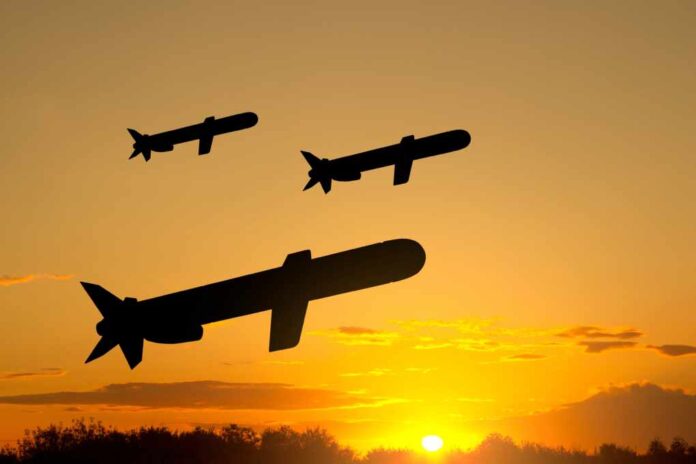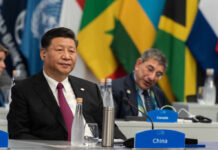
A new NATO admission underscores President Trump’s strategic foresight on military aid to Ukraine, solidifying his stance on American defense priorities.
Story Highlights
- NATO Secretary-General Mark Rutte agrees with Trump’s decision against sending Tomahawk missiles to Ukraine.
- Training for Tomahawk missiles poses a significant challenge, requiring extensive time and expertise.
- The Trump administration shifts focus from military aid to economic sanctions on Russia.
- Sanctions target key Russian oil companies, Rosneft and Lukoil, to pressure a cease-fire.
NATO Supports Trump’s Decision
NATO Secretary-General Mark Rutte recently acknowledged President Trump’s strategic choice not to supply Tomahawk cruise missiles to Ukraine. In a video statement, Rutte emphasized that deploying such complex weaponry would necessitate months of training for non-American forces, thereby delaying their effectiveness in the ongoing conflict. This endorsement of Trump’s decision showcases a shared understanding of realistic military capabilities and resource allocation.
Highlighting the impracticality of immediate deployment, Rutte reiterated that the Ukrainian forces would not be able to operate these systems without significant preparation. Trump’s stance is rooted in practical considerations about the training curve associated with Tomahawks, which he described as a sophisticated and powerful weapon requiring extensive training.
NATO Chief Admits Trump Is 'Completely Right' About Tomahawks After White House Meeting https://t.co/S2CdShkI2k
— Douglas Jones (@jonedoug) October 23, 2025
Economic Sanctions Over Military Aid
Instead of escalating military engagement, the Trump administration has opted to increase economic pressure on Russia. Sanctions have been imposed on Russia’s largest oil companies, Rosneft and Lukoil, aiming to cripple the financial mechanisms that fuel the Kremlin’s military operations. Treasury Secretary Scott Bessent highlighted these companies as critical components of Russia’s war machine, advocating for an immediate cease-fire through economic levers rather than military escalation.
Trump’s strategy represents a shift from direct military involvement to leveraging economic tools, aligning with conservative values of strategic resource management. This move underscores a commitment to safeguarding American interests while addressing global conflicts through measured, non-military means.
Watch: Trump Rejects Sending Ukraine Tomahawk Missiles: ‘Tremendous Learning Curve’
Dialogue with Russia Remains Elusive
Despite ongoing efforts, President Trump expressed frustration with the lack of meaningful progress in dialogues with Russian President Vladimir Putin. Repeated conversations have failed to yield tangible results, leading to the cancellation of a planned summit. This decision reflects a pragmatic approach to international diplomacy, prioritizing effective outcomes over fruitless discussions.
The Trump administration’s focus on economic sanctions over military escalation highlights a commitment to addressing international conflicts through strategic, non-combative measures. This approach aligns with broader conservative values of prudent governance and defense, safeguarding American interests in complex global landscapes.
Sources:
https://www.yahoo.com/news/articles/nato-chief-trump-completely-reason-002623811.html
https://thehill.com/homenews/administration/5568688-rutte-trump-ukraine-tomatwahk/

























